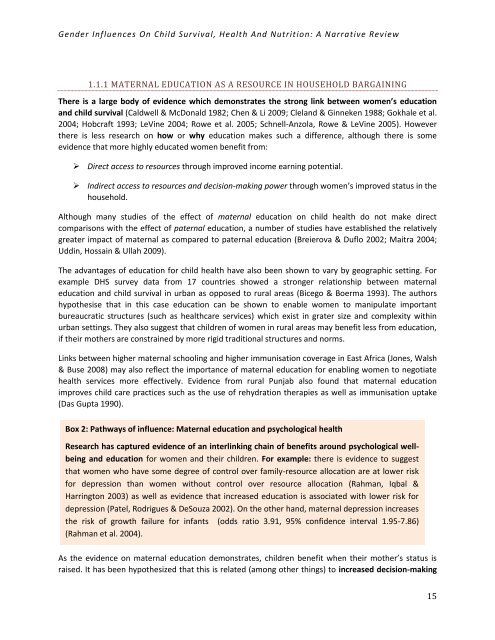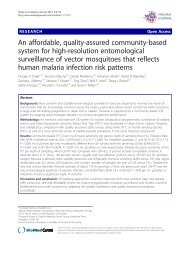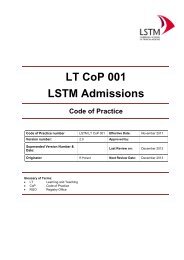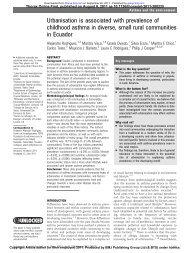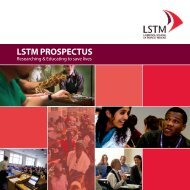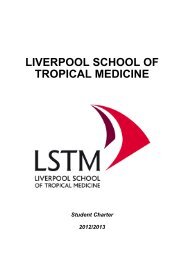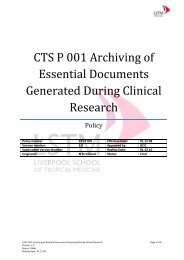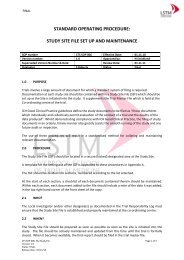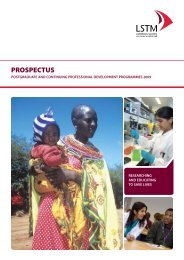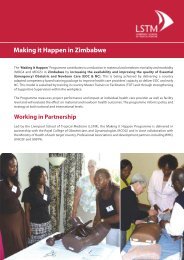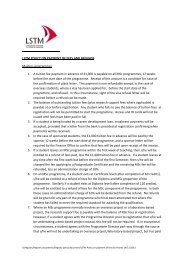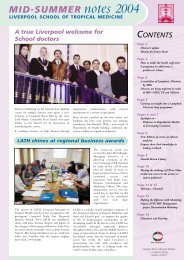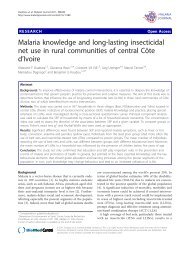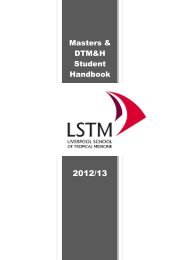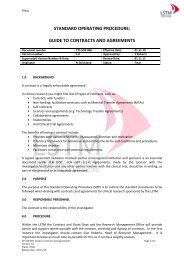Gender influences on child survival, health and nutrition: a ... - Unicef
Gender influences on child survival, health and nutrition: a ... - Unicef
Gender influences on child survival, health and nutrition: a ... - Unicef
Create successful ePaper yourself
Turn your PDF publications into a flip-book with our unique Google optimized e-Paper software.
<str<strong>on</strong>g>Gender</str<strong>on</strong>g> Influences On Child Survival, Health And Nutriti<strong>on</strong>: A Narrative Review<br />
1.1.1 MATERNAL EDUCATION AS A RESOURCE IN HOUSEHOLD BARGAINING<br />
There is a large body of evidence which dem<strong>on</strong>strates the str<strong>on</strong>g link between women’s educati<strong>on</strong><br />
<strong>and</strong> <strong>child</strong> <strong>survival</strong> (Caldwell & McD<strong>on</strong>ald 1982; Chen & Li 2009; Clel<strong>and</strong> & Ginneken 1988; Gokhale et al.<br />
2004; Hobcraft 1993; LeVine 2004; Rowe et al. 2005; Schnell-Anzola, Rowe & LeVine 2005). However<br />
there is less research <strong>on</strong> how or why educati<strong>on</strong> makes such a difference, although there is some<br />
evidence that more highly educated women benefit from:<br />
‣ Direct access to resources through improved income earning potential.<br />
‣ Indirect access to resources <strong>and</strong> decisi<strong>on</strong>-making power through women’s improved status in the<br />
household.<br />
Although many studies of the effect of maternal educati<strong>on</strong> <strong>on</strong> <strong>child</strong> <strong>health</strong> do not make direct<br />
comparis<strong>on</strong>s with the effect of paternal educati<strong>on</strong>, a number of studies have established the relatively<br />
greater impact of maternal as compared to paternal educati<strong>on</strong> (Breierova & Duflo 2002; Maitra 2004;<br />
Uddin, Hossain & Ullah 2009).<br />
The advantages of educati<strong>on</strong> for <strong>child</strong> <strong>health</strong> have also been shown to vary by geographic setting. For<br />
example DHS survey data from 17 countries showed a str<strong>on</strong>ger relati<strong>on</strong>ship between maternal<br />
educati<strong>on</strong> <strong>and</strong> <strong>child</strong> <strong>survival</strong> in urban as opposed to rural areas (Bicego & Boerma 1993). The authors<br />
hypothesise that in this case educati<strong>on</strong> can be shown to enable women to manipulate important<br />
bureaucratic structures (such as <strong>health</strong>care services) which exist in grater size <strong>and</strong> complexity within<br />
urban settings. They also suggest that <strong>child</strong>ren of women in rural areas may benefit less from educati<strong>on</strong>,<br />
if their mothers are c<strong>on</strong>strained by more rigid traditi<strong>on</strong>al structures <strong>and</strong> norms.<br />
Links between higher maternal schooling <strong>and</strong> higher immunisati<strong>on</strong> coverage in East Africa (J<strong>on</strong>es, Walsh<br />
& Buse 2008) may also reflect the importance of maternal educati<strong>on</strong> for enabling women to negotiate<br />
<strong>health</strong> services more effectively. Evidence from rural Punjab also found that maternal educati<strong>on</strong><br />
improves <strong>child</strong> care practices such as the use of rehydrati<strong>on</strong> therapies as well as immunisati<strong>on</strong> uptake<br />
(Das Gupta 1990).<br />
Box 2: Pathways of influence: Maternal educati<strong>on</strong> <strong>and</strong> psychological <strong>health</strong><br />
Research has captured evidence of an interlinking chain of benefits around psychological wellbeing<br />
<strong>and</strong> educati<strong>on</strong> for women <strong>and</strong> their <strong>child</strong>ren. For example: there is evidence to suggest<br />
that women who have some degree of c<strong>on</strong>trol over family-resource allocati<strong>on</strong> are at lower risk<br />
for depressi<strong>on</strong> than women without c<strong>on</strong>trol over resource allocati<strong>on</strong> (Rahman, Iqbal &<br />
Harringt<strong>on</strong> 2003) as well as evidence that increased educati<strong>on</strong> is associated with lower risk for<br />
depressi<strong>on</strong> (Patel, Rodrigues & DeSouza 2002). On the other h<strong>and</strong>, maternal depressi<strong>on</strong> increases<br />
the risk of growth failure for infants (odds ratio 3.91, 95% c<strong>on</strong>fidence interval 1.95-7.86)<br />
(Rahman et al. 2004).<br />
As the evidence <strong>on</strong> maternal educati<strong>on</strong> dem<strong>on</strong>strates, <strong>child</strong>ren benefit when their mother’s status is<br />
raised. It has been hypothesized that this is related (am<strong>on</strong>g other things) to increased decisi<strong>on</strong>-making<br />
15


